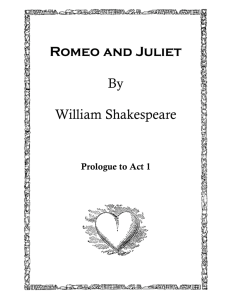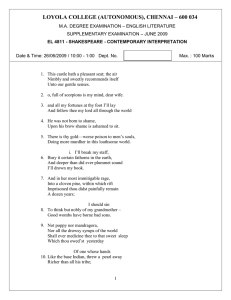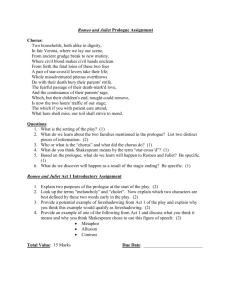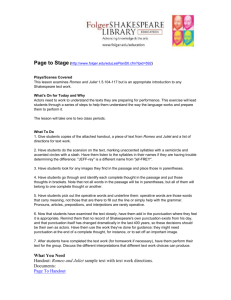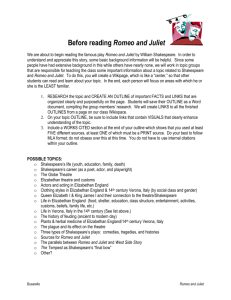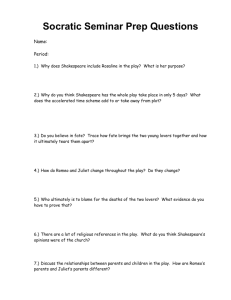Rules for Reading Shakespeare (adapted from Teacher Reading
advertisement
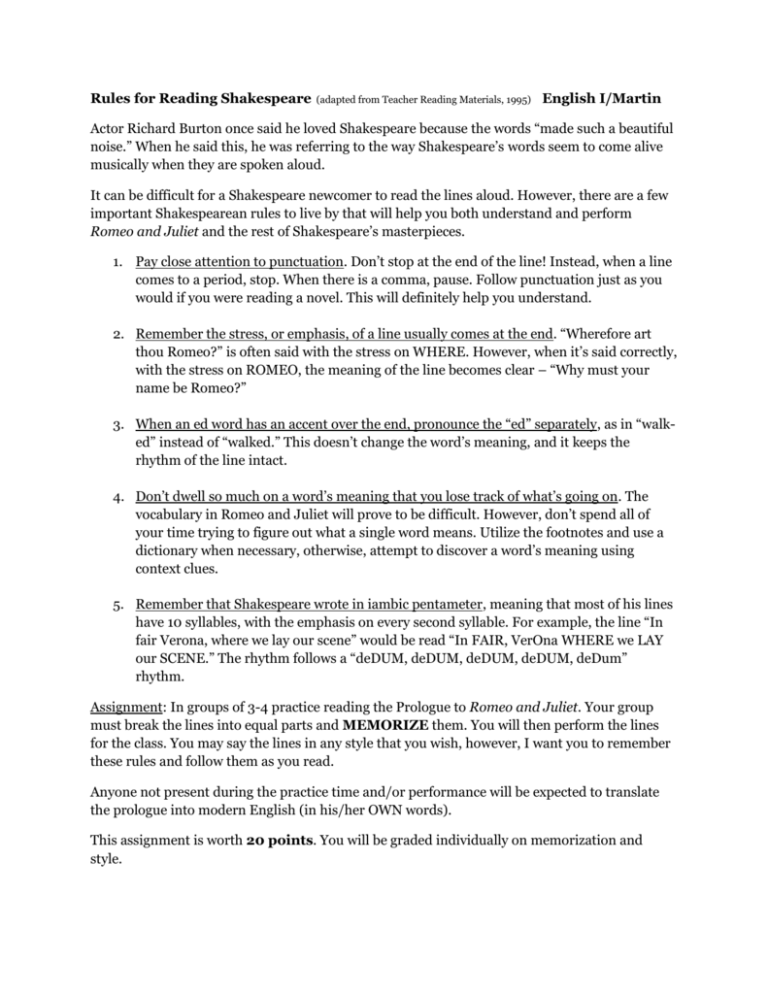
Rules for Reading Shakespeare (adapted from Teacher Reading Materials, 1995) English I/Martin Actor Richard Burton once said he loved Shakespeare because the words “made such a beautiful noise.” When he said this, he was referring to the way Shakespeare’s words seem to come alive musically when they are spoken aloud. It can be difficult for a Shakespeare newcomer to read the lines aloud. However, there are a few important Shakespearean rules to live by that will help you both understand and perform Romeo and Juliet and the rest of Shakespeare’s masterpieces. 1. Pay close attention to punctuation. Don’t stop at the end of the line! Instead, when a line comes to a period, stop. When there is a comma, pause. Follow punctuation just as you would if you were reading a novel. This will definitely help you understand. 2. Remember the stress, or emphasis, of a line usually comes at the end. “Wherefore art thou Romeo?” is often said with the stress on WHERE. However, when it’s said correctly, with the stress on ROMEO, the meaning of the line becomes clear – “Why must your name be Romeo?” 3. When an ed word has an accent over the end, pronounce the “ed” separately, as in “walked” instead of “walked.” This doesn’t change the word’s meaning, and it keeps the rhythm of the line intact. 4. Don’t dwell so much on a word’s meaning that you lose track of what’s going on. The vocabulary in Romeo and Juliet will prove to be difficult. However, don’t spend all of your time trying to figure out what a single word means. Utilize the footnotes and use a dictionary when necessary, otherwise, attempt to discover a word’s meaning using context clues. 5. Remember that Shakespeare wrote in iambic pentameter, meaning that most of his lines have 10 syllables, with the emphasis on every second syllable. For example, the line “In fair Verona, where we lay our scene” would be read “In FAIR, VerOna WHERE we LAY our SCENE.” The rhythm follows a “deDUM, deDUM, deDUM, deDUM, deDum” rhythm. Assignment: In groups of 3-4 practice reading the Prologue to Romeo and Juliet. Your group must break the lines into equal parts and MEMORIZE them. You will then perform the lines for the class. You may say the lines in any style that you wish, however, I want you to remember these rules and follow them as you read. Anyone not present during the practice time and/or performance will be expected to translate the prologue into modern English (in his/her OWN words). This assignment is worth 20 points. You will be graded individually on memorization and style. Helpful “translations” (with room for more!) ‘a: he a’: on an’ or and: if but: if, if only anon!: Soon! Right Away! Coming! gooden, goden, or godden: Good evening! hap or happy: luck or lucky jack: common guy Mark: listen! humor: mood, or moisture maid: unmarried girl Marry!: oath, “from the Virgin Mary” nice: foolish, silly stay!: Wait! owes: owns soft!: quiet! withal: with that, with wot: know heavy: sorrowful still: always envious: mean I’: in or if thou: I, you, she, he thee: me, you, him, her thy: my , your, his, her thine: mine, yours, his, hers
